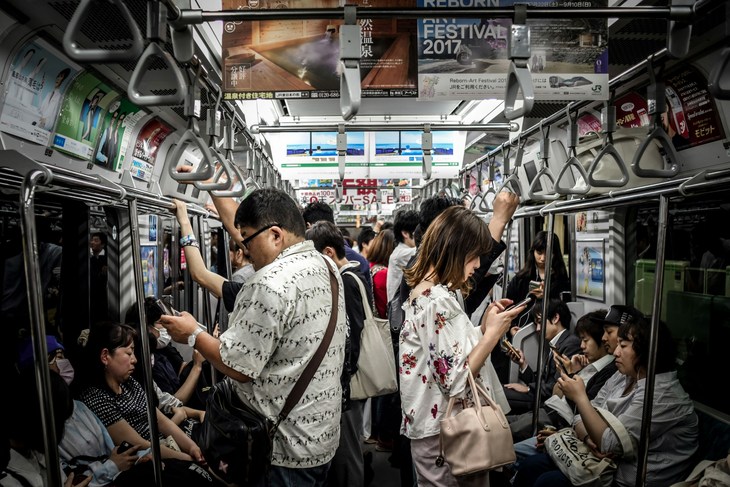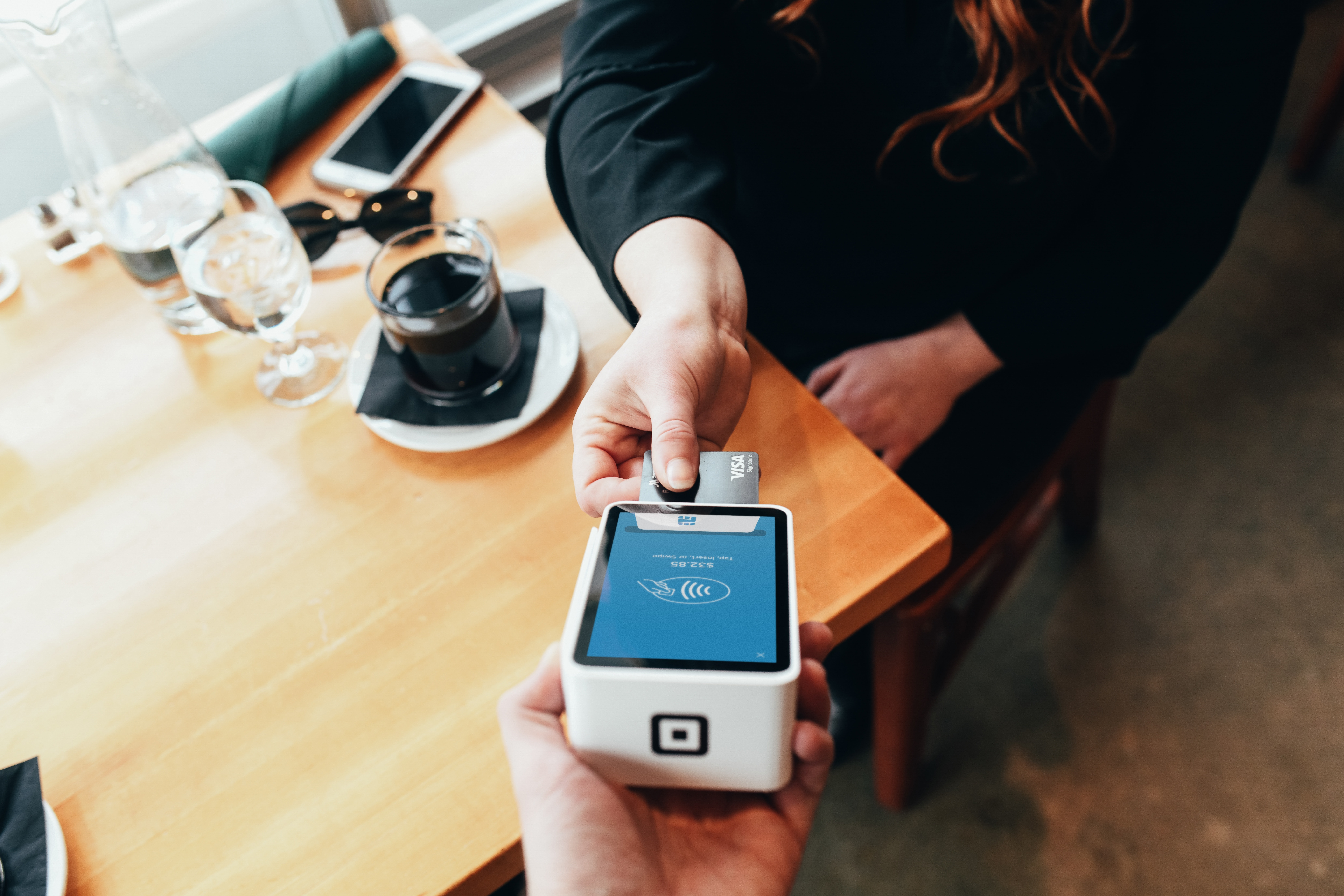How to Get a Smartphone in Japan
If you've moved to Japan, you're probably going to need some way to communicate with people. Whether you bring your own phone from your home country and get a new sim card to use it in Japan or buy a new one here, you'll want to make a contract with a mobile carrier so that you can start using your phone in the country.
But coming to a new country, especially if you do not speak the language, can make getting a new phone and number seem daunting. To take away all that stress, let's take a look at how to get a smartphone in Japan, from what you'll need to make a contract with a mobile carrier to which carrier in Japan is best for you.
How to Sign Up for a Phone Contract
To sign up for a new contract with one of Japan's three major wireless carriers, your best bet is to head to one of their stores. You can find them all over major cities in Japan as well as inside department and electronics stores. The major carriers all have stores where staff can speak English or other languages, and you can usually check on the carrier's website which stores have staff who speak which language. If you have just arrived in Japan and can't speak Japanese, then be sure to try to find one of these stores or bring someone with you who can speak Japanese to help you out.
Nowadays, it is usually possible to sign up for phone plans with carriers online, so that may be an option as well. However, many carriers may not have online sign-ups available in English, which is why signing up at a store may be your best choice when you are new to Japan. Plus, if you are getting a new phone as part of your plan you'll be able to start using it as soon as you leave the store, rather than having to wait for it to come in the mail.
To sign up for a phone plan you need to meet a few requirements. First, you'll need to have ID, ideally the residence card you get at the airport when you first move to Japan. You'll also usually need proof of your address, which can be anything from a utility bill with your name on it to an official "juminhyo" (residence record) that you can get from the city hall or ward office where you registered your address after arriving in Japan.
Wireless carriers are usually most concerned about whether or not you can pay for your plan, so many of them require that you either have a credit card in your name you will use to pay, or a bank account from which your phone bill will be withdrawn monthly. If you don't have a credit card or a Japanese bank account, you'll need to arrange either one before you can get a smartphone from many carriers.
Also, you should know that wireless carriers will only make contracts with people over 20 years old. So if you have children and you want them to have their own smartphones, they'll need to sign up through your contract rather than make their own.
Major wireless carriers usually require you to sign up for a two-year contract, especially if you also buy a phone as part of the plan and are going to pay for it monthly. If your visa's period of stay is for only one year or you only have a year or less left on your visa, you'll either have to pay for the new phone completely upfront, or you may not be allowed to sign up at all. Again, this depends on the carrier, and many smaller, more budget-friendly carriers don't require two-year contracts.
There are two main kinds of wireless carriers in Japan: the major mobile providers and smaller, budget-friendly carriers that are known as MVNOs (mobile virtual network operators). We'll cover both kinds of carriers and tell you about some of the carriers that you have available to choose from.
The Three Major Mobile Phone Providers in Japan
If you want to use a major carrier's services in Japan, you essentially have three options. They each have their own plans, advantages, and disadvantages, and each company also offers additional services or potential benefits on top of their smartphone plans. All three carriers provide reliable coverage across the entire country, so which one you choose will depend on which one is the most attractive to you.
Using a major carrier will also give you access to free wi-fi networks run by the companies for their customers, which are usually available in stores or restaurants. They all also give you the choice to sign up for their point cards, which you can use to accumulate points that can eventually be redeemed for various goods or at shops.
One key difference between the major carriers and many MVNOs is that all of the major carriers offer plans where you can buy a new phone as part of the plan and pay it off as part of your monthly phone bill. Keep in mind though that if you choose to use one of the major carriers, your monthly phone bills will likely be more expensive than if you were to choose a budget wireless carrier.
・ Docomo
Docomo is the largest mobile carrier in Japan and is a popular choice because of its network's stability and coverage. Thanks to partnerships with other businesses, Docomo users can also often get discounts at certain shops or department stores.
Click Here to visit Docomo's website and learn more.
・ au
Au, which is part of the telecommunications operator KDDI, is another major company with good coverage across the country. They are the second-largest wireless carrier in Japan. If you have a plan with au, you'll also get several perks, such as being able to get discounted movie tickets at some theater chains on Wednesdays and getting access to a pre-paid Mastercard au offers its members for free.
Click Here to visit au's website and learn more.
・ SoftBank
While SoftBank may not have as many customers as Docomo and au, it is still a big, popular wireless carrier in Japan. They recently partnered with the popular cashless payment app PayPay, making it so you can convert points you earn for using SoftBank into PayPay points that you can use for cashless payments. As cashless payments are becoming more accepted across Japan, this could be a nice perk for you if you decide to choose SoftBank.
Click Here to visit SoftBank's website and learn more.
Budget Carriers in Japan
If you want to keep your monthly phone bill down or use an unlocked or SIM-free phone, budget wireless carriers known as MVNOs may be a good option for you. Most of these companies allow you to migrate your phone to their network, and monthly costs are much lower than the major companies. Most MVNOs provide their services using one of the three major companies' networks, which is how they can keep prices down.
If, however, you want to get a new smartphone through a wireless carrier and pay it off monthly, MVNOs might not be right for you. While some of them do offer the ability to buy a phone as part of your plan, many do not. Those that do may only offer certain phones or the previous year's model of a phone, rather than the newest version. So if you want to get the latest iPhone as part of your phone plan through the carrier, a major carrier would be an easier choice.
Some MVNOs also do not have physical stores. Instead, the signup process is entirely online. While this can be convenient and get you started with your new plan quickly, especially if you just need an e-SIM for your old phone, if the MVNO does not have English support on their website it can be very difficult to sign up if you cannot read Japanese. Many companies are working to improve English support on their websites, so know that this situation is improving.
Starting a new life in a new country is not cheap, so if you are looking to save some money on your monthly phone bills or keep using your old phone, consider signing up with an MVNO. There are now tons of budget wireless carriers in Japan, but here are a few of the popular ones.
・Rakuten Mobile
Rakuten Mobile is one of the few MVNOs that actually operates its own network rather than using a major provider, which makes it rather unique. Their "pay-what-you-use" plans are popular and easy to understand since you quite literally pay based on how much data you use in a month, with the cost of using up to 3 GB of data being less than ¥1000. Applications for this carrier are mostly done online, but they do have some physical stores. It is also possible to buy a phone through Rakuten Mobile. Their high-speed network works great in urban centers, but since they operate their own network that is new relative to other networks, some users report spotty connections in some areas including more rural areas outside of the big cities.
Click Here to learn more about Rakuten Mobile.
・Y!mobile
Y!mobile is an MVNO that is in part operated by SoftBank, so it uses their network. This carrier also has phones available to buy through them, though the options are much more limited compared to SoftBank. Online signup is available in English, but Y!mobile also has physical stores all over Japan, so you can head to one if you want to sign up for a phone plan in person. They also offer various family plans and student discounts, so they likely have a plan that fits your needs.
Click Here to learn more about Y!mobile.
・UQ Mobile
UQ Mobile is a part of KDDI, the telecommunications operator that owns and operates au. They have a wide range of plans available to suit your needs, including packages with small monthly data caps all the way to huge ones. Like Y!mobile, you can buy a phone through UQ Mobile, though again options are more limited compared to a major carrier. You can sign up for UQ Mobile online or at one of their physical stores.
Click Here to learn more about UQ Mobile.
・Mineo
Mineo is a bit unique in that if you sign up with them, you'll be able to access all three of the major carrier's networks, so you do not need to worry about a lack of coverage. They offer a unique "Free Tank" function where users can share data with each other. So if you have family members who are using up all of their data and you have extra, you can give some to them. They also offer the option to buy a phone through them, though they do not carry the most recent models.
Click Here to learn more bout mineo (Japanese only).
What are Phone Companies Charging You For?
Depending on the carrier you choose or your plan, it can be difficult to understand what exactly you are paying for, even if you speak Japanese. So let's break down the basic pricing of an average phone plan to help you understand what you are paying for.
・ Phone Costs
If your contract is with a major carrier and you bought a new smartphone as part of your plan, you will be charged monthly for the phone itself. You can usually choose to pay off the phone in twenty-four or forty-eight installments. If you pay for the phone in one lump sum up-front, or you sign up for a plan with a carrier where you can use your old phone or a SIM-free phone, you won't have to deal with these charges.
・ Basic Monthly Charges
This basic monthly charge will not change month to month and is based on the plan you choose. This charge usually includes the number of minutes you can talk on the phone or how many SMS messages you can send, if any. Since texting through SMS is rare in Japan as everyone uses messaging apps such as Line to talk to each other, many phone plans do not include SMS messaging by default.
・ Web Usage Fee
The three major carriers in Japan charge a monthly fee to connect to the internet. Other smaller carriers may also include this charge, but it depends on the company.
・ Data Communication Charges
This is the charge for your monthly data usage. When you choose a plan, be sure to think carefully about how much data you will use in a month. Again, most people in Japan do not message via text or call through the regular phone line but instead use Line, which uses the internet to send messages and make calls. That, plus using the net for watching videos, using social media, getting directions, and so on can quickly eat up a lot of your monthly data. If you go over your monthly cap, your phone's data speeds will usually be throttled significantly and you will have to pay overage fees, which can quickly jack up the price of your monthly phone bill.
If you don't think you'll be using data much at all, choose a plan with a low monthly data cap or a "pay for what you use" plan. If you are a heavy user, it may be worth dishing out the extra cash monthly for an unlimited plan. If you fall somewhere in the middle, most carriers offer plans that include around 20gb of data per month, which may be plenty.
Make the Choice That's Right for You
There's a lot to consider when signing up for a new phone plan, especially when you are moving to a new country and quickly need to get a SIM card set up so that you can communicate with others and find your way around the country. By keeping in mind all the information we've gone over today, you should be able to make an informed decision about what wireless carrier is best for you and whether it is best for you to keep using your current phone or buy a new one.
Whether you choose one of the major carriers or an MVNO, know that cell phone reception in Japan is usually excellent. Good luck finding the plan that's best for you!

























